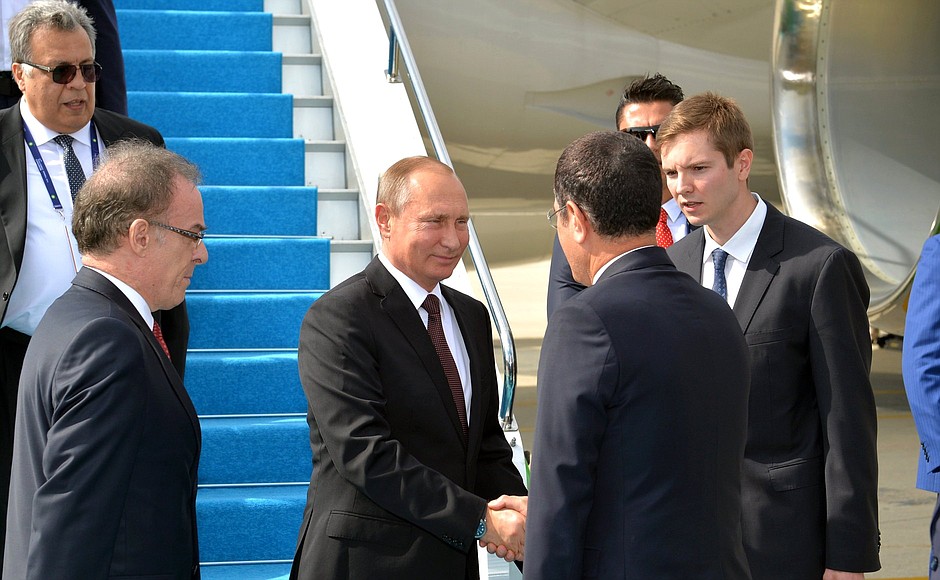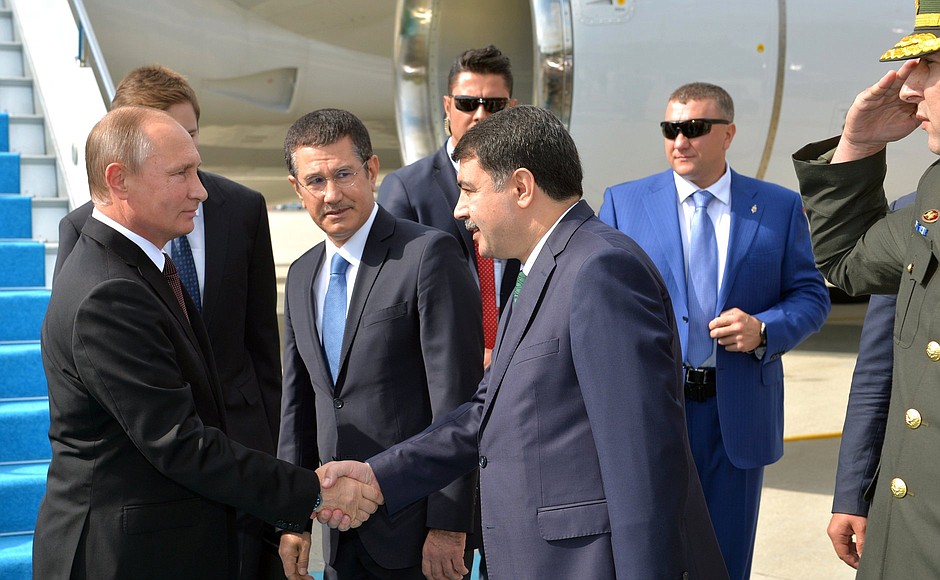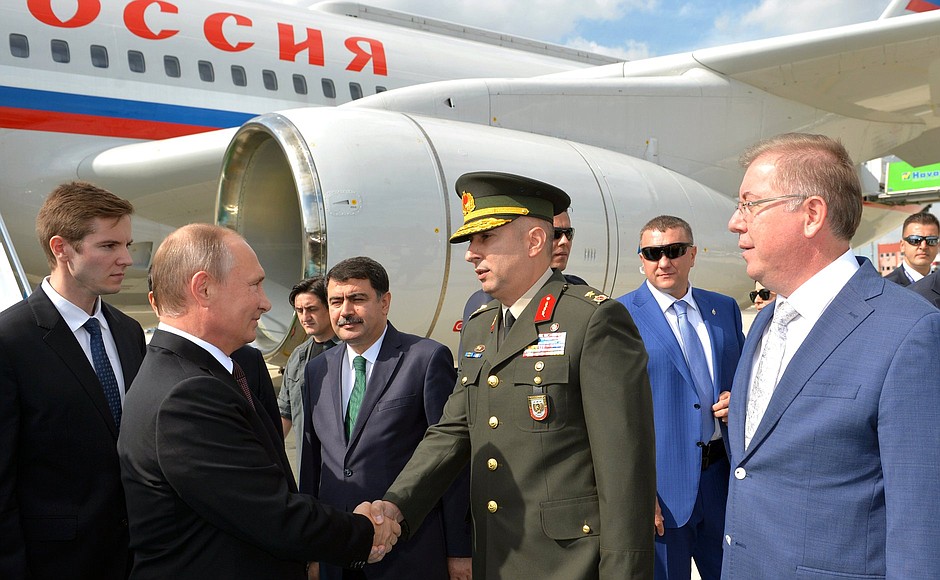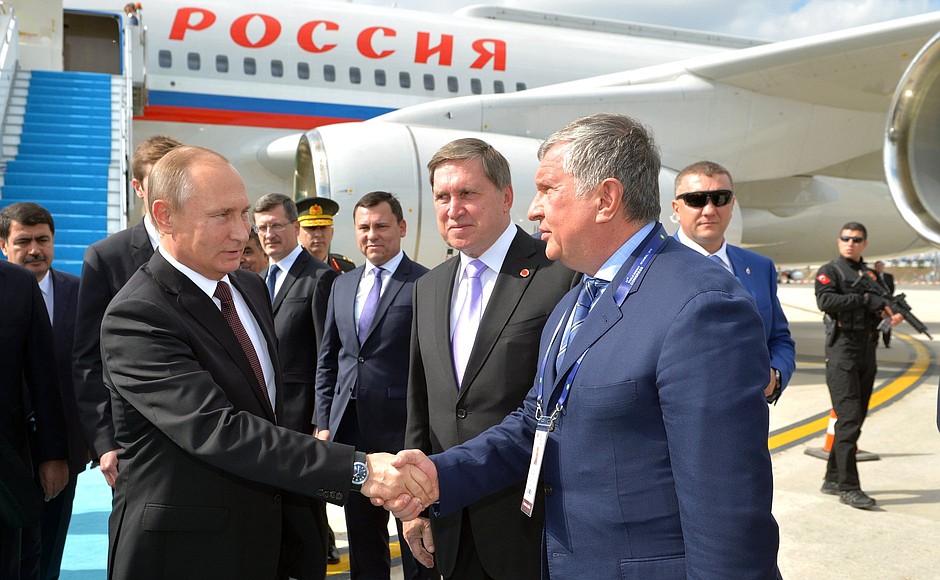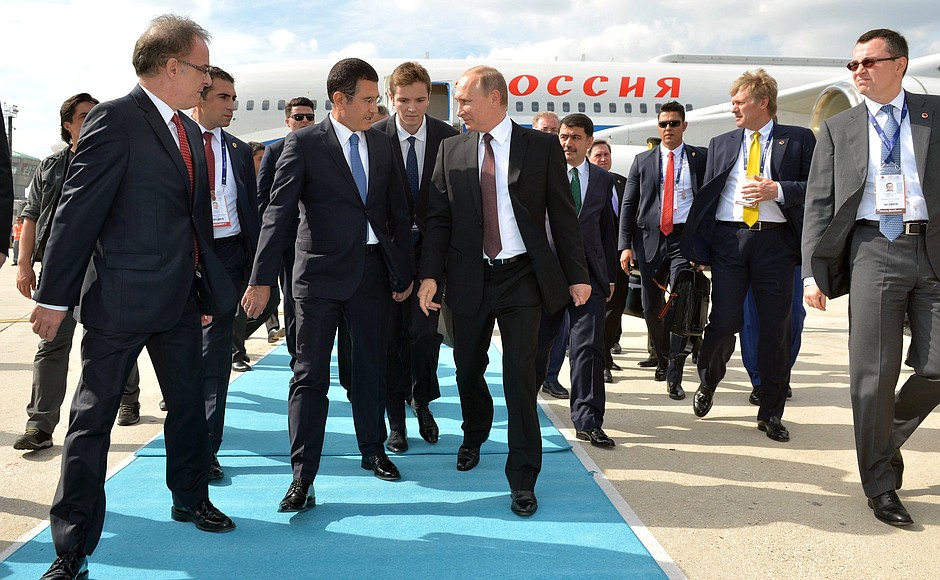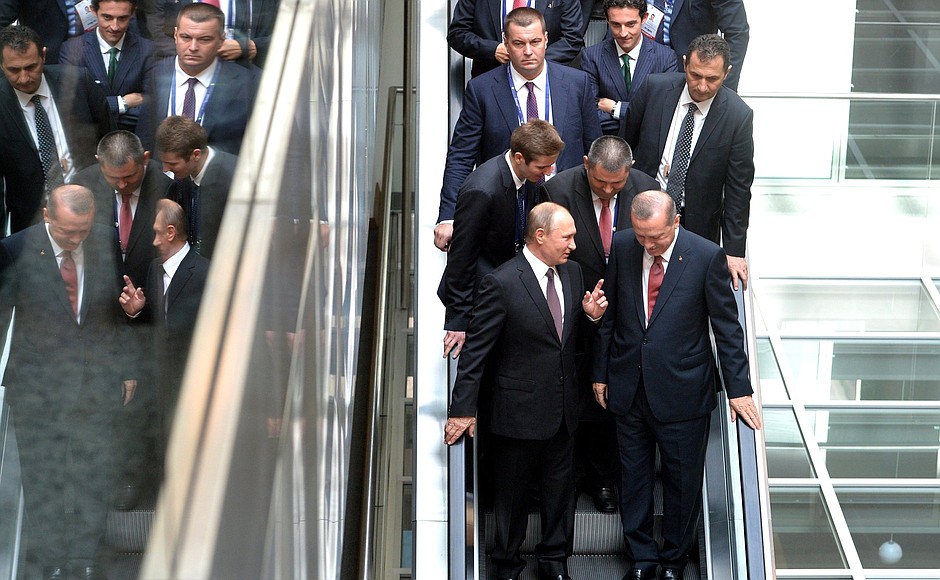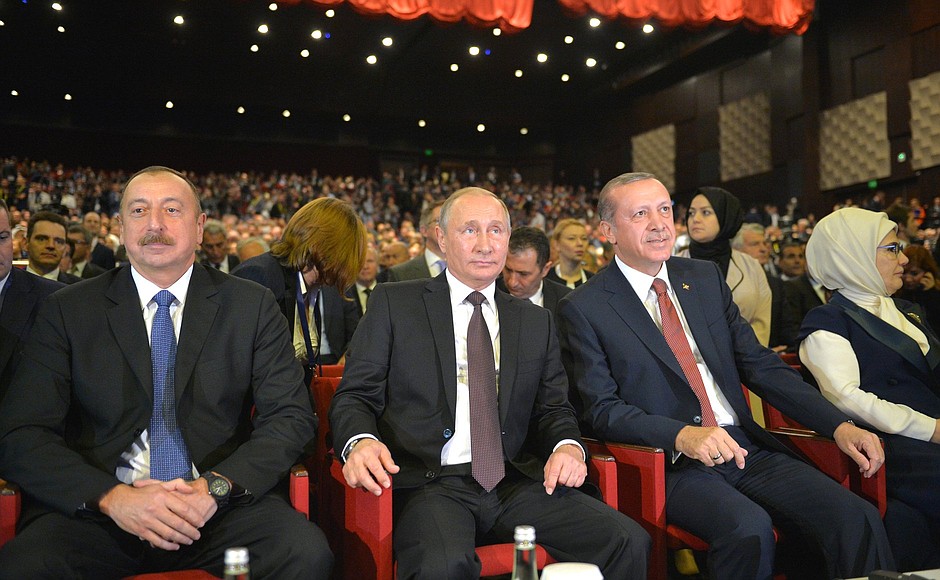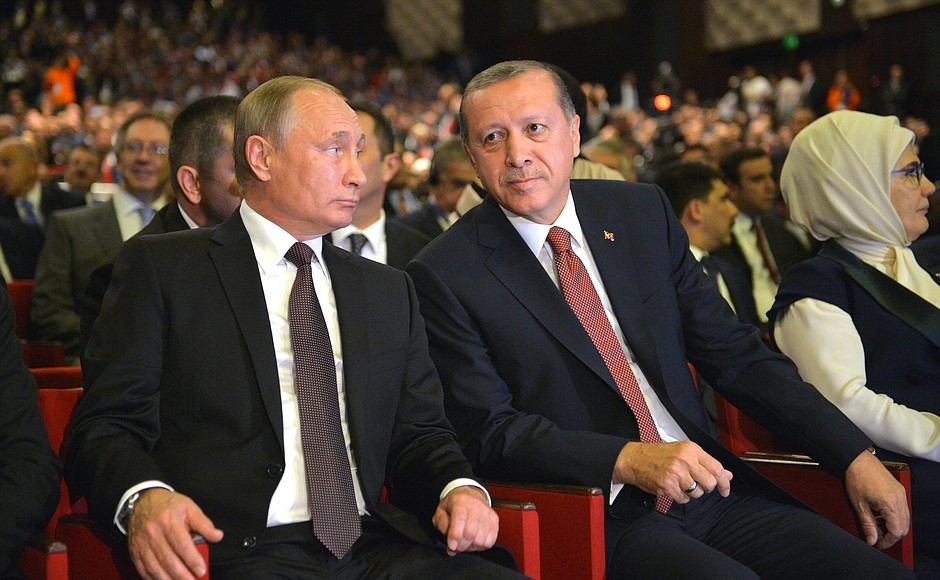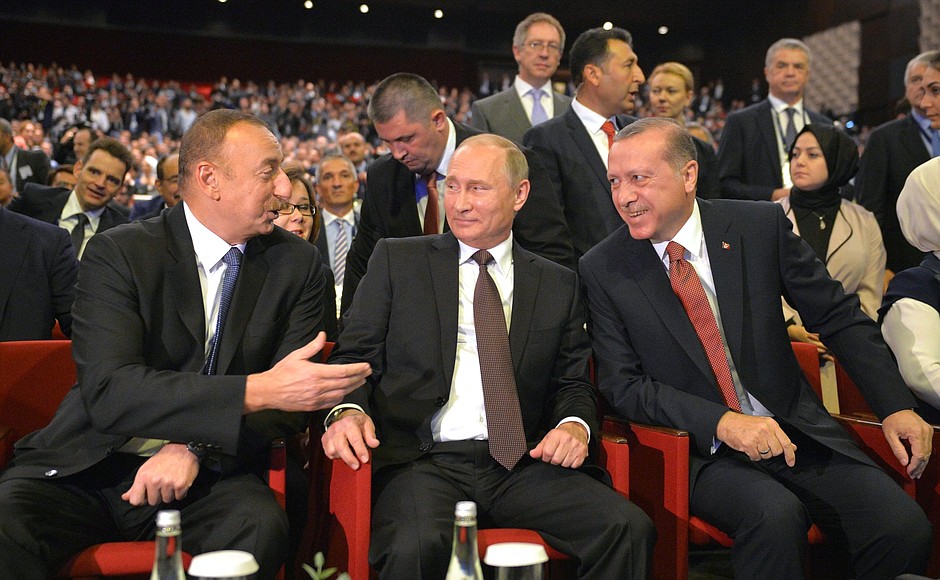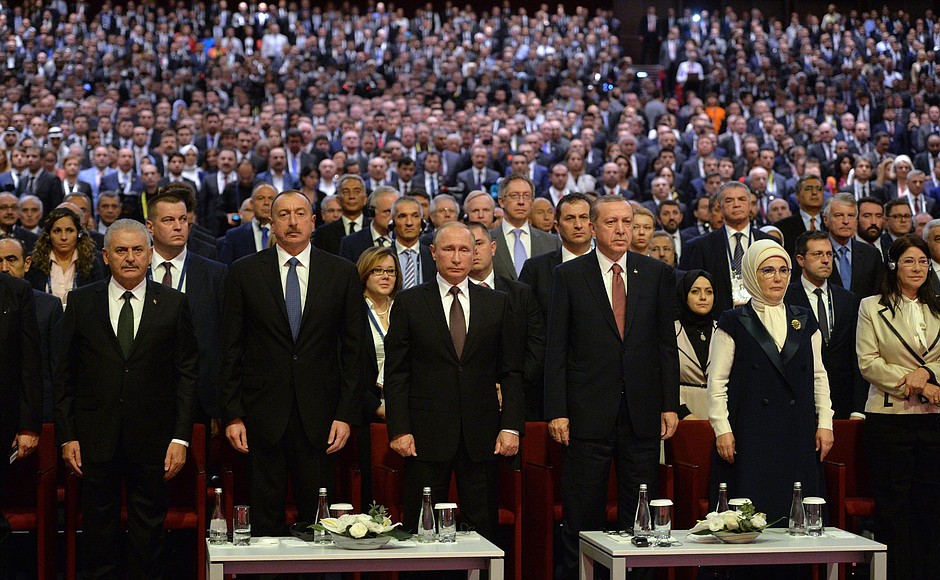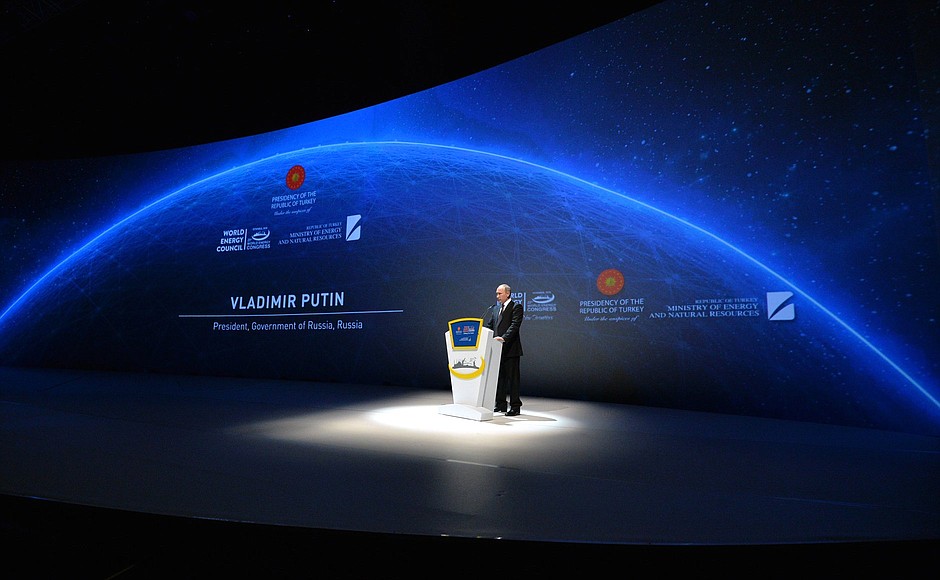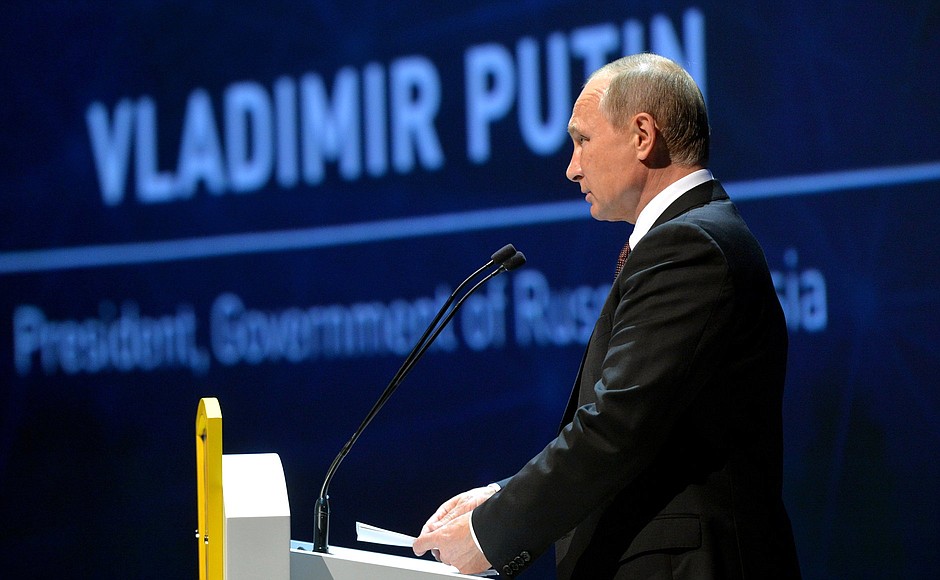President of Russia Vladimir Putin: President Erdogan, presidents and colleagues, Mr Prime Minister, ladies and gentlemen,
It is a great pleasure to have the opportunity to address such an authoritative international forum. I believe that in the current complicated global economic situation, these talks taking place here at the World Energy Congress offer a good opportunity for a professional and concerned discussion of the biggest issues facing the energy sector today and their influence on global growth prospects.
Our common task is to ensure that all people in the world have access to modern energy sources. I would like to remind you that there are still two billion people in the world who do not have such access. We must remove the energy barriers on the road to universal economic growth and development. We must ensure that people in even the poorest countries have access to the basic blessings of civilisation such as electricity, light and heating.
We cannot ignore that the situation on global energy markets, especially on the hydrocarbons market, has undergone serious change over recent years. Oil prices fell by more than half and some even said that the hydrocarbon era was heading for decline and that we should shift the focus entirely to alternative energy sources now. I think that there are no real grounds for such far-reaching conclusions yet, not for now at least.
Certainly, humanity is moving towards green energy, and this is definitely the general development vector and the right road to take. Demand for renewable energy is growing very rapidly compared to demand for traditional energy sources. The spread of new technology such as distributed power generation, powerful accumulators, and smart grids are accelerating this process. At the same time, oil and gas consumption also continue to grow, though at not as fast a pace as in the past.
Demand for traditional energy resources comes not only from the growing number of cars and electrification of huge countries and economies such as China, India and others, but also from the continuing penetration of petroleum and gas chemistry into a very diverse range of areas of human life and industrial processes.
Furthermore, the extensive growth of liquefied natural gas production means that the gas market is becoming truly global for the first time in history. The supporting infrastructure is expanding very quickly. Forecasts estimate that trade in liquefied natural gas will outstrip gas supplies via pipeline systems within the next 10 years.
Global interest in buying LNG will only grow.
Let me remind you that according to the International Energy Agency’s forecasts, the world will remain a hydrocarbon world in 20–30 years’ time and demand for oil and gas will continue to rise. By 2040, oil will account for approximately 26 percent of total global energy consumption, coal for 25 percent, gas for 24 percent, biomass and biofuel for 10 percent, nuclear energy for 7 percent, hydro-power for 3 percent, and other renewable energy sources for 5 percent. This is a medium-term forecast and we must look yet further still, but it does give us quite a clear picture and sets some directions for us.
How did we end up with today’s excess supply of hydrocarbons? The answer is clear. High oil prices over the past 10 years led to an unprecedented flow of investment into the energy sector.
Improved extraction methods and possibilities for accessing hard-to-extract oil combined with simpler access to financing made it possible to develop new, previously unprofitable reserves. This helped a number of importing countries to develop their own production capacity with the result that market ended up facing considerable surplus production and a sharp collapse in prices. Look at what is happening today. The low oil prices have set off the longest cycle of decline in investment activity in the sector in 45 years.
Capital expenses on oil production over the last two years have dropped by close to half-a-trillion dollars. Note too, colleagues, that the drop in investment in geological exploration has led to the lowest growth in oil reserves in the past 70 years. We are seeing mass cancellation of investment plans in projects that are now considered economically inexpedient.
There is no doubt that if these trends continue, the shortage of financing will become chronic and the global overproduction of energy resources will turn into a global deficit with unpredictable new price fluctuations that will ultimately hit producers and consumers alike. In this situation, we therefore think that freezing or even reducing oil production is probably the only correct decision if we want to preserve the entire global energy market’s stability. This will not at all upset market mechanisms, but on the contrary, will help to rebalance the market sooner.
Russia is ready to take part in joint measures to limit production and calls on other oil exporters to do the same. We support the recent OPEC initiative to set limits on production and hope that OPEC’s November meeting will fix this proposal in concrete agreements, sending a positive signal to markets and investors and, of course, helping to reduce speculative activity and avoid new price fluctuations.
At a time of turbulent global energy markets, producers and exporters must follow a responsible and predictable line, and so must energy consumers. We can guarantee energy security if we act in truely coordinated fashion and genuinely take into account each other’s interests. At the same time, we of course support a firm commitment to the principles of free trade and fair competition. We are for the consistent liberalisation of trans-border capital flows and for expanding industrial and technological cooperation on a systemic basis.
I would like to single out that attempts to hold back the energy sector’s development for the sake of any country’s political ambitions are unacceptable. I am referring here to the currently fashionable practice of unilateral sanctions and unjustified restriction of access to investment resources and advanced technology. This does not in any way produce the results these measures’ initiators expected.
Nonetheless, the authorities in a number of countries follow a practice of recommending businesses to wind up profitable projects and renounce buying energy supplies at the best prices and via the shortest delivery routes. They cite as justification the need for allied solidarity and bloc discipline.
Such action does nothing to stabilise the global energy market or the global economy. Speaking frankly, as we all see and know, the initiators of these ideas are not really thinking about their allies and partners here, but they never take decisions that go against their own interests.
Colleagues, as a major energy power, Russia has always made its contribution to ensuring long-term sustainable development and will continue to do so.
We are encouraging the exploration of new fields and continue investing in production even in today’s difficult economic conditions. There should be no doubt in your minds that our country will continue to be a reliable energy supplier on the global markets.
Russian energy exports are a guarantee for the successful functioning of many countries’ economies. I will only mention that our oil and gas account for more than a quarter of the European Union’s energy consumption. We have been supplying Europe with natural gas without interruption for nearly 50 years now.
We have brought online an extensive pipeline network, including the most modern pipelines in terms of technical equipment and environmental safety. We are currently working hard on the Nord Stream 2 project. During preparations for today’s visit, we had detailed talks with our Turkish partners and President Erdogan and reached agreement on implementing the Turkish Stream project. We also plan to actively develop energy exports on eastern routes – to China, Japan and India.
Together with our partners from other countries, we are developing energy transport possibilities, expanding liquefied natural gas production and carrying out a number of other big infrastructural projects for delivering hydrocarbons to traditional and new markets. This includes the Eastern Siberia – Pacific Ocean and Power of Siberia pipelines, which will ship to China, and modernising the terminals in the Far East’s ports.
We take a responsible attitude towards environmental and climate issues and give great attention to raising the share of clean energy sources, hydroelectricity and nuclear energy in our energy consumption. We are improving state regulation of greenhouse gas emissions and seek to achieve a rapid and economically effective reduction of emissions in line with the Paris Agreement. Russia will continue to work constructively in the energy sector with all parties concerned on the basis of mutually advantageous and equal partnership.
In conclusion, I would like to wish all participants in the World Energy Congress successful and productive work and thank the event’s organisers. We realise that today is perhaps not the best time for holding big events in Turkey, as we know that the country recently went through an attempted coup d’etat. We followed very closely and with great concern the events in Turkey. I would like to congratulate the Turkish people and President Erdogan on succeeding in keeping the situation under control. We are very pleased to see that Turkey is recovering and we wish you success.
Thank you.
